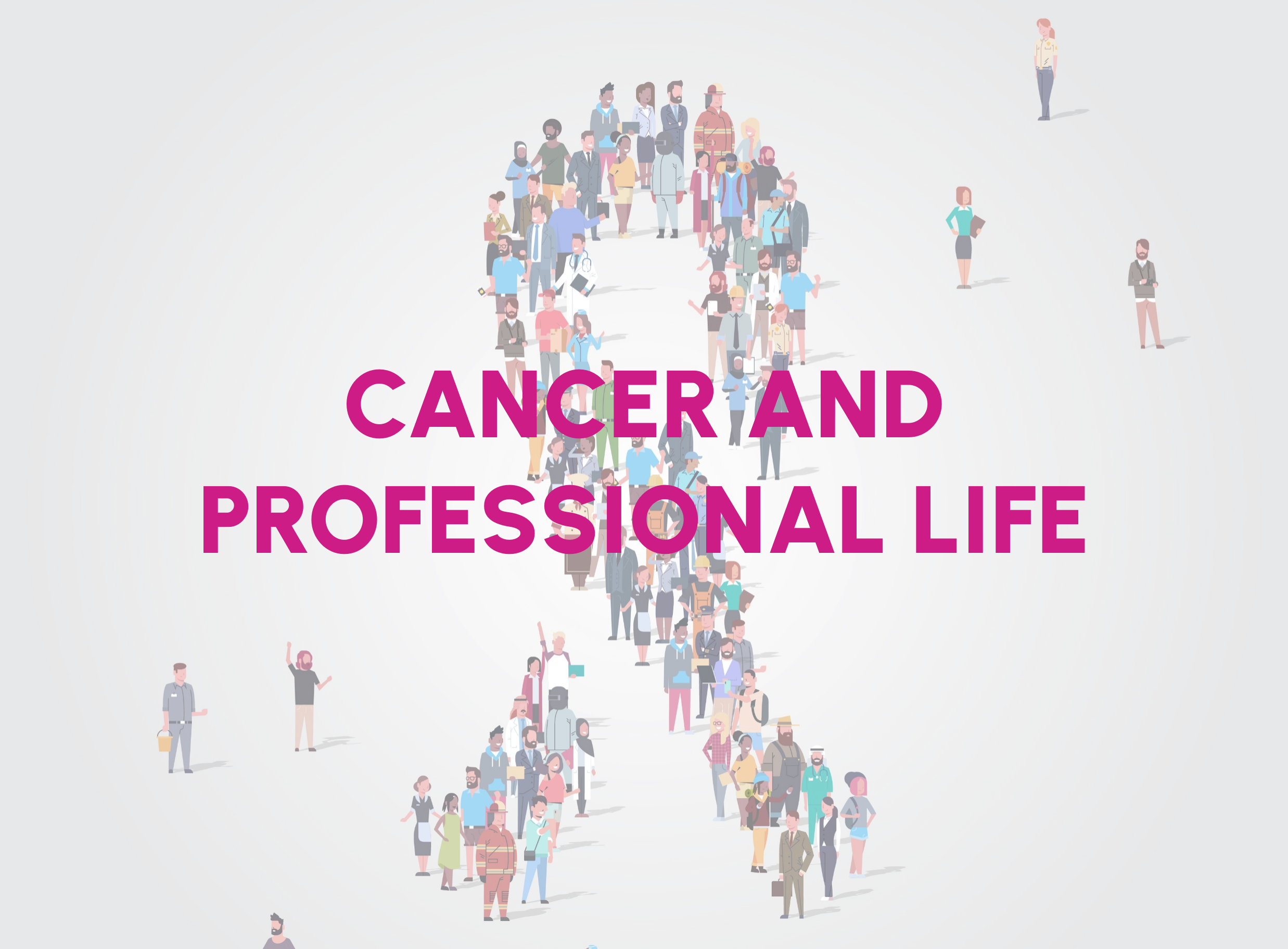CANCER AND PROFESSIONAL LIFE, Preventing Professional Exclusion, Preserving the Vital Forces of the Company
For the 38 million people living in France today with a cancer diagnosis, it is a life-changing event. Beyond the ordeal of treatments, cancer deeply affects a person’s intimate self, their sense of life, and sometimes even their identity. The repercussions of the disease manifest in physical, mental, and emotional health, affecting all areas of life, including social and professional spheres.
In 2020, the National Cancer Institute (INCA – France) estimated that there were 400,000 new cancer cases diagnosed that year, with 160,000 of these individuals being employed at the time of their diagnosis. Besides those directly affected by the disease, cancer impacts families, with 3 million caregivers, meaning one in three families is affected by cancer.
Professional Consequences of Work Absences
Employees with cancer often experience long-term work absences that significantly impact their career trajectories. Studies show that the longer the sick leave, the more difficult the return to work. Absences longer than one month increase the risk of unemployment or inactivity the following year. According to INCA, 20% of 18-54-year-olds employed at the time of diagnosis are not working five years later. To prevent this kind of professional drop-out, it is crucial that the employee does not spend too much time away from the company and receives support to facilitate their return.
Increasingly, companies are committing to supporting their employees affected by cancer.
Maintaining Contact, Anticipating, and Preparing the Employee’s Return
During the illness-induced absence, the employment contract is suspended and only resumes when the occupational health physician evaluates the employee’s health and provides a fitness-for-work opinion. However, during the absence, HR, managers, and colleagues can approach the person, provided it is done with discernment and kindness.
During contact, they may encounter various reactions depending on the individual’s personal and professional situation. Cancer is a life challenge that brings strong emotions and many sometimes contradictory feelings (need to focus on the illness and treatments, desire to stay connected, fear of losing the job, guilt, etc.). It is important to respect the employee’s wishes and to consider their needs, which will vary throughout the illness, treatments, and remission prospects.
Asking for updates and staying informed, directly or through colleagues, sends a positive signal: the person is not forgotten and remains part of the company.
When Treatment and Work Can Be Compatible
Advancements in care protocols and treatments provide new solutions for employees who wish to remain employed during treatments. During the care process, the oncologist explains and argues the therapeutic plan to the patient. In some cases, continued employment with accommodations can be discussed and decided by the patient with the doctor’s agreement.
It is advisable to implement an accommodation plan with the support of occupational health services. Sometimes, the patient may choose not to inform the company or share the information with a trusted person. However, this can lead to exhaustion, which can be detrimental to recovery and convalescence. It also creates misunderstandings among colleagues regarding changes in the patient’s behavior and performance. If staying employed during treatment becomes a feasible and favorable option, it should be done in a spirit of co-construction and communication between the healthcare team, the patient, and company stakeholders.
Supporting the Return, Committing for the Long Term
The employee can benefit from therapeutic accommodations organized with occupational health physicians, allowing a gradual return to the company. This progressive return considers fatigue, concentration and memory issues often observed, and other consequences of the disease while trying to reduce the gap with the professional world.
Preparing the employee’s return involves connecting the manager with other support actors (medical service, social assistance, HR). This preparation includes organizing potential therapeutic accommodations proposed by the occupational health physician, rethinking team organization to manage workload, defining realistic tasks and goals for the employee, and readapting them until full-time resumption.
Upon return, the employee needs signs of acceptance, interest, and solidarity from the manager and team. The manager should welcome, listen to, and allow the employee to express their situation, motivations, and difficulties. They should also encourage and give the employee time for adaptation and recovery, which is not always easy. Managers are not often trained and prepared for this, relying only on their life experience and desire to do their best.
In France, over half of patients are alive five years after cancer, and cure rates are improving significantly. These substantial advances enable people experiencing the disease to resume their personal and professional lives. Companies play a crucial role in reintegrating employees, allowing them to regain their place and their human and economic contributive value (Cancer Plan 2021-2030).
Eutelmed supports companies in implementing specialized support for employees and managers, providing training or coaching so that all involved can collectively foster return and job retention.

About the Author
Annick DULION, Doctor of Pharmacy, professional and health coach, expert in recovery with companies and in integrative health centers.








